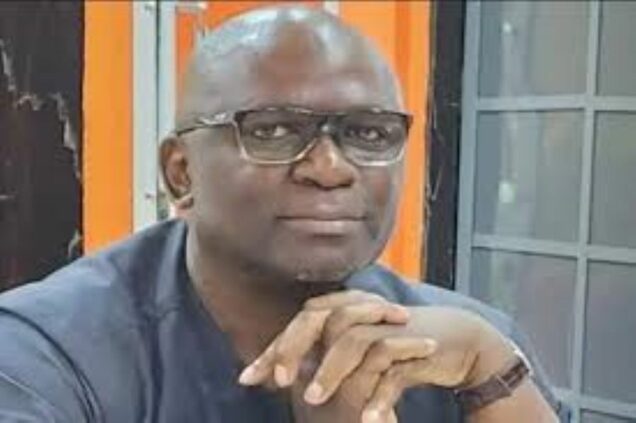Nollywood producer and director, Shina Sanyaolu has passed away. The president of the Theatre Arts and Motion Pictures Practitioners Association of Nigeria (TAMPAN), Mr Latin recently confirmed it via his social media page, and fans have been reacting.
His words, “Sleep well Uncle Shina Sanyaolu.”

Jide Kosoko added that late Shina was not just an amazing man, his incredible support for the Nigerian movie industry was second to none.
Prince Jide Kosoko added, “**Tribute to a Beloved Brother: Shina Sanyaolu**
Goodnight, my dear brother.
Shina Sanyaolu was not just a remarkable man; he was a beacon of kindness and warmth to all who had the privilege of knowing him.
His love for the arts and his unwavering support for our industry were unmatched. Shina was always there for us, offering a helping hand and opening doors where there seemed to be none. For those of us who traveled to the UK in the 80s, he made it feel like home, welcoming us with open arms, giving us a place to stay, and even taking time off from his busy life to drive us around.
Shina, your generosity knew no bounds, and your spirit touched countless lives. You were truly a rare gem. The world feels emptier without you, but we take solace in knowing that your legacy lives on in the hearts you’ve touched.
As you journey to eternal rest, greet your dear friend Babatunde Omidina, also known as Baba Suwe, and all those who have gone before you. Your impact will never be forgotten, and your memory will forever be cherished.
Rest in peace, my brother. You will be deeply missed.”
WOW.
Nollywood is a sobriquet that originally referred to the Nigerian film industry. The origin of the term dates back to the early 2000s, traced to an article in The New York Times. Due to the history of evolving meanings and contexts, there is no clear or agreed-upon definition for the term, which has made it a subject to several controversies.
The origin of the term “Nollywood” remains unclear; Jonathan Haynes traced the earliest usage of the word to a 2002 article by Matt Steinglass in the New York Times, where it was used to describe Nigerian cinema.
Charles Igwe noted that Norimitsu Onishi also used the name in a September 2002 article he wrote for the New York Times. The term continues to be used in the media to refer to the Nigerian film industry, with its definition later assumed to be a portmanteau of the words “Nigeria” and “Hollywood”, the American major film hub.
Film-making in Nigeria is divided largely along regional, and marginally ethnic and religious lines. Thus, there are distinct film industries – each seeking to portray the concern of the particular section and ethnicity it represents. However, there is the English-language film industry which is a melting pot for filmmaking and filmmakers from most of the regional industries.
Support InfoStride News' Credible Journalism: Only credible journalism can guarantee a fair, accountable and transparent society, including democracy and government. It involves a lot of efforts and money. We need your support. Click here to Donate
